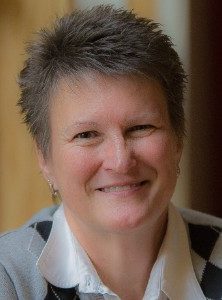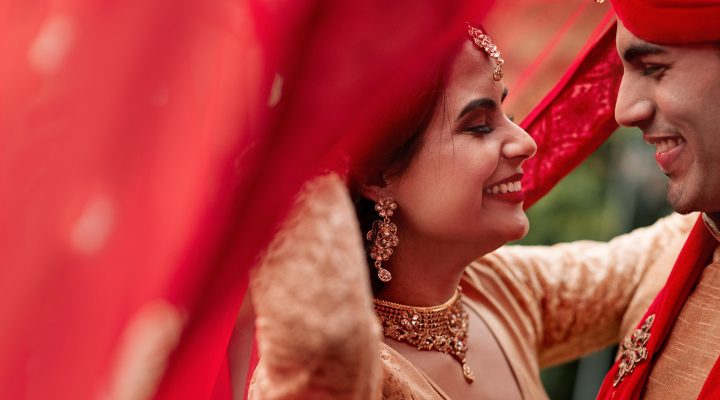I just got back from my third trip to Tamil Nadu, India. My academic program has a decade-long collaboration with two schools there, and their faculty have traveled to Oregon three times for shared projects. Over the years, I’ve built deep friendships with a number of Tamil faculty, to the point we can laugh over our cultural faux pas, and they are many.
I’ve never been in a culture so different from my own than when I visit India. My hosts have to explain almost everything to me, and still, most of the time I end up having no clue what’s going on around me. On this third trip, I was joined by two professors from Spain on their first visit to India. At one point, one turned to me and asked, “Do you know what is happening now?” “No idea,” I responded, “just go with the flow.”
On this third trip, I realized I had at last begun to relax in this culture, in the not-knowing, because I had learned I could trust my hosts to get me where I needed to be, tell me what to do and make sure I didn’t take a bite of something so hot it would burn my esophagus. I also realized I had begun to see things differently, that I had moved beyond the chaos and brain fog of being overwhelmed with new sights, sounds, tastes, smells, expectations, beliefs and experiences.

Susan Shaw
Granted, I still felt those things, but I also began to see things I’d missed before, to make sense of things in a different way. And because I’d built such strong friendships, I was able to ask deeper questions and probe to understand our differences and similarities.
I went to a wedding with my friends, a Hindu wedding — an arranged marriage, as most of them still are in this region. A few days before, I had chatted with a group of graduate students about arranged marriage. Most of them expected their parents would find them a mate. Some worried their parents might take them out of school to marry them off. Some even feared their parents or other relatives might kill them if they rejected an arranged marriage because of the dishonor it would bring the family.
While many of them wished for change, most of them accepted the practice for now because it is the way to maintain unity in the family and community, and for them this is a higher value than individual autonomy.
“I was able to ask the kinds of questions that helped me start to see a culture that values family and community over all.”
That’s hard for an American to understand. Even after everything I saw and heard, I struggle with it. Yet, as a friend, I was able to ask the kinds of questions that helped me start to see a culture that values family and community over all.
Individual choices are subsumed under the priority of family and community. Arranged marriages are about a family’s status, and when a young woman and young man marry, they contribute to the status of their families through the various traditions of marriage there.
The process has changed in the last several years for many Tamil people. During the months in which the marriage ceremony is arranged, either person can say no. The couple have opportunities for interaction, and both must agree to the marriage before it proceeds. Romantic love as we understand it in the United States is fairly irrelevant, although couples often do grow to love one another as they share family and life together.
Of course, in the U.S., most of us also know romantic love may not always be what it’s cracked up to be, having a few broken hearts along the way, sometimes a divorce, sometimes a lifetime of married unhappiness. Granted, I’m not sure I’d ever have wanted to miss the elation of that spark of romance and attraction (even when it was probably doomed from the start), but now I also see how for other people happiness might not be in individual romantic relationships but in the fulfillment of duty and contribution to community.
At the wedding, I saw the scope of family and community as a thousand people participated in some way in the two-day event (a typical size for a middle-class wedding in Tamil Nadu). The families of the couple were involved in various ceremonies across the two days. This, my friends explained, was a way to help the two families get to know one another because in India the marriage is between families, not just between a woman and man.
Did we all also recognize some of the issues of gender, class and caste? Of course, we did. My feminist friends are not unaware of the problems of their institutions that reinforce gender binaries and hierarchies. They see how class and caste maintain rigid distinctions. And they are working to make changes as they can where they are.
“Our work together is mutual solidarity and allyship, and that only happens through authentic friendship.”
That’s their task, not mine. Mine is to work for similar change where I am, within my tradition that also still subordinates women and LGBTQ people, that is still racially segregated on Sunday mornings, that is playing an outsized role in a growing movement of white Christian nationalism.
Our work together is mutual solidarity and allyship, and that only happens through authentic friendship.
We also visited a couple of Hindu temples on this trip. These temples are magnificent edifices, often dedicated to a single god or goddess or with shrines to a variety of deities, all with their own histories, duties and requirements. People come to the temples to pray, to worship, to make offerings, to find comfort and guidance. Personally, I can’t begin to understand the pantheon of Hindu deities, but my friends explained to me, it’s all one God with many manifestations. They also explained the moral obligations of Hinduism, which sounded an awful lot like “Love God. Love one another. Do justice.”
The whole reason I was in India was because these friends and I have such common ground in wanting to dismantle sexist oppression and injustice that we want to find ways to work together to make a difference.
This, if anything, was my witness to my Christian faith — authentic friendship across our differences with common cause in our work together. My faith is my love for them, and their faith is their love for me. In the midst of being with them, conversion hardly seemed a relevant cause for relationship. Rather, I saw the call of the gospel as one simply to be with them without any underlying motive except love. Friendship, not conversion, felt to be the point.
Anything else seemed to be a continuation of the colonizing efforts of empires that used what Botswana feminist biblical critic Musa Dube calls “God, gold, glory and gender” to subordinate entire peoples and plunder their resources. To imagine bringing conversion into our conversations felt like a betrayal of our unconditional acceptance of one another, one more way to assert Christian and American superiority over people who already have found their way to love of God, love of others, and just living.
“Do we not perhaps reflect God better in our authentic relationships with one another across our differences than in intellectual assent to theological propositions?”
Do we not perhaps reflect God better in our authentic relationships with one another across our differences than in intellectual assent to theological propositions? In other words, isn’t the point of the gospel for us to live in love with God and one another in authentic relationships that embody that love in the ways we are together and treat one another? Maybe the good news is that we can love each other just as we are, just as different as we are, the way God loves each of us.
I know many Christians read the Bible to say what’s at stake is other people’s immortal souls, that unless they profess belief in Jesus they are doomed to eternity in hell. Obviously, I don’t read the Bible that way. For me, the Bible is much more concerned with life in this world than in the next.
Christian faith is about how we live in our relationships with God and others. Beyond that, I trust that whatever comes after this life, we find ourselves embraced in God’s love.
Being Christian helps me be a better friend, love across differences, work for justice and make space for not knowing. Maybe that’s the point after all.
Susan M. Shaw is professor of women, gender and sexuality studies at Oregon State University in Corvallis, Ore. She also is an ordained Baptist minister and holds master’s and doctoral degrees from Southern Baptist Theological Seminary. Her most recent book is Intersectional Theology: An Introductory Guide, co-authored with Grace Ji-Sun Kim.
Related article:
The one thing that unites the world’s religions | Opinion by Rob Sellers


